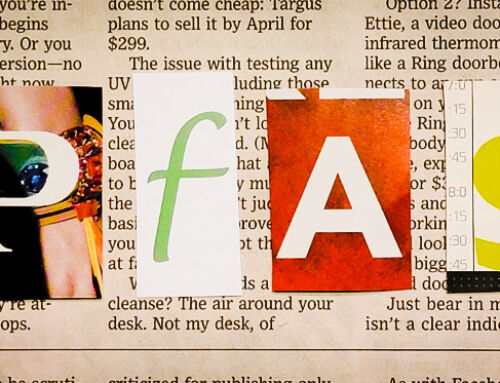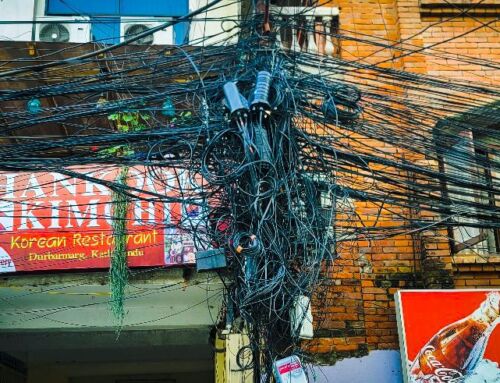View by Topic
Recent Articles
-
New Environmental Laws from the 2024 Maryland Legislative SessionSaturday, April 27th, 2024
-
EPA Designates PFOA and PFOS as Hazardous Substances under Superfund LawSaturday, April 20th, 2024
-
Federal Government Finalizes New Efficiency Standards for LightbulbsSaturday, April 13th, 2024
-
2024 IECC is Final After Addressing Preemption IssuesSaturday, April 6th, 2024
-
Settlement Portends Broad Failure in Attempts to Ban Natural GasSaturday, March 30th, 2024
View by Month/Year
“Green Building Law Update” Headlines
Recent Articles & News from
Stuart Kaplow’s blog
at GreenBuildingLawUpdate.com
- EPA Takes Action: PFOA and PFOS Now Hazardous Substances Under Superfund Law April 21, 2024
- Shedding Light on the Future: The Evolution of Lightbulbs in the Wake of New Energy Efficiency Standards April 14, 2024
- 2024 International Energy Conservation Code is Final After Addressing Preemption April 7, 2024
- Settlement Portends Broad Failure in Attempts to Ban Natural Gas March 31, 2024
Subscribe to the Green Building Law Update!
Stuart Kaplow brings his expertise and extensive experience to the table with his unique digital publication, "Green Building Law Update". Subscribers receive regular updates to keep them informed about important issues surrounding Environmental Law, Green Building & Real Estate Law, as well as the emerging demand for Environmental Social Governance (ESG).
Get fresh content through the lense of Stuart Kaplow's cutting-edge expertise, innovative commentary and insider perspective. Don't miss another issue! Subscribe below.

Net Zero Pledge Standards for Business released at COP27
Much has been written in the media about the just concluded UN Climate Conference (COP27) in Sharm el-Sheikh, most of it focusing on the agreement to agree on reparations or more correctly stated, on providing “loss and damage” funding in the future for vulnerable countries hit hard by climate disasters. But the biggest takeaway for businesses in the U.S., today and into the future, is the release of standards for Net Zero emission pledges by non-state actors.
The world has seen a ballooning of Net Zero commitments by non-state actors, in particular from the private sector. The growth in pledges has been accompanied by a proliferation of criteria and benchmarks to set Net Zero commitments with varying levels of robustness.
In response to the call for clearer and more robust standards, COP27 saw the launch of standards in a report, “Integrity Matters: Net Zero Commitments by Businesses, Financial Institutions, Cities and Regions” from the hastily assembled United Nations’ High Level Expert Group on the Net Zero Emissions Commitments of Non-State Entities.
“We must have zero tolerance for net zero greenwashing,” said the Secretary-General at the launch of the Group’s report from Sharm el-Sheikh on November 8, 2022, calling the report “a how-to guide to ensure credible, accountable net zero pledges.”
The report is premised on the urgent admonition that “to limit warming to 1.5°C, global emissions must peak by 2025 and be cut in half by 2030, on the way to net zero emissions by mid century.”
What the expert group has provided is a roadmap to prevent Net Zero from being undermined by false claims, ambiguity, and “greenwashing.” The report builds on the existing science and best in category voluntary efforts to create a world wide definition of Net Zero, based on 5 principles and 10 standards to guide the future of Net Zero, and focused on holistic actions that should be taken by companies today.
The 10 standards, detailed in the report, describe what non-state actors need to consider through each stage of their progress towards achieving Net Zero ambitions and addressing the climate crisis:
1. Announcing a Net Zero Pledge 2. Setting Net Zero Targets 3. Using Voluntary Credits 4. Creating a Transition Plan 5. Phasing out of Fossil Fuels and Scaling Up Renewable Energy 6. Aligning Lobbying and Advocacy 7. People and Nature in the Just Transition 8. Increasing Transparency and Accountability 9. Investing in Just Transitions 10. Accelerating the Road to Regulation.
Each of the 10 standards is detailed with particularity. Among the most critiqued aspects of the standards may be mandates that:
- Non-state actors cannot buy cheap carbon credits that often lack integrity instead of immediately cutting their own emissions across their value chain, (but the UN left Egypt having failed to reach any agreement on rules governing carbon credits).
- Non-state actors cannot focus on reducing the intensity of their emissions rather than their absolute emissions or tackling only a part of their emissions rather than their full value chain (scopes 1, 2, and 3), (despite that today scope 3 emission calculations are imprecise if not more like voodoo economics).
- Non-state actors cannot lobby to undermine ambitious government climate policies either directly or through trade associations or other bodies, (despite that among the 193 member states few are true representative democracies).
These just released international standards are a big deal for every business that has made a public announcement or is contemplating making an announcement that it “we will be Net Zero by 2030” or must publicly disclose they are “Net Zero by 2040” by way of example, as mandated for all large building owners by Maryland’s carbon statute.
U.S. businesses must now thread the needle not only with this new UN report, which establishes an international standard for Net Zero claims (.. that does not have the force of law), but also with national laws like those in the U.S., including the FTC Green Guides, soon to be updated, the SEC proposed rule on climate risk disclosure, and for those companies with sales in the EU, the 2006 directive concerning misleading and comparative advertising.
We recognize that the capabilities of businesses vary widely, so we are excited to bring the scale of resources required for non-state actors, from a multinational corporation to a local real estate developer, to first appreciate, then implement, and finally accelerate the pace of positive global change that is upon us in this era of permacrisis.
This voluntary UN initiative notes approvingly that most business owners understand the need to mitigate climate risk and many companies are already seized with the multi-trillion dollar economic opportunity that accompanies this transition to Net Zero.
We urge non‑state actors, our clients and others, to review their Net Zero commitments against these new standards to see how they stack up with a focus on each business’ interim targets, how they set those environmental targets, and how they report progress toward Net Zero.
A live webinar “Maryland is the First State to Regulate Carbon,” 30 talking points in 30 minutes, Tuesday, December 13 at 9 am EST presented by Stuart Kaplow and Nancy Hudes on behalf of ESG Legal Solutions, LLC. The webinar is complimentary, but you must register here.









